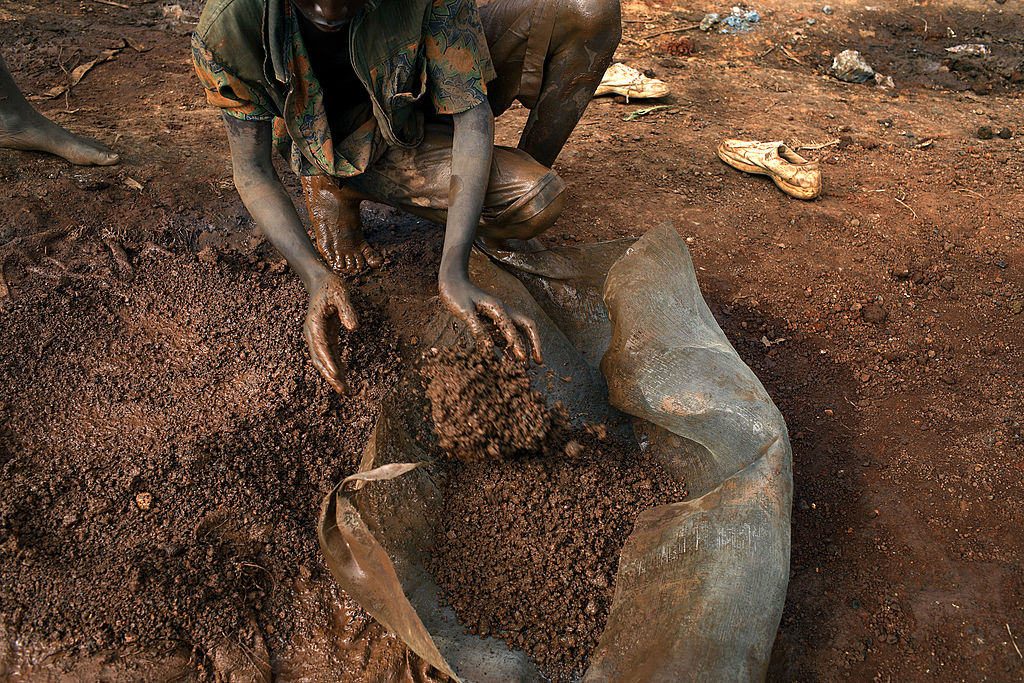ADF STAFF
Vast deposits of cobalt, copper, molybdenum and other metals have made the Democratic Republic of the Congo (DRC) and Zimbabwe important centers of the global mining industry as companies seek resources vital to modern technology.
Chinese companies have built significant mining footprints in both countries, often at the expense of the people doing the backbreaking work or living in the shadow of the mines.
Researchers at the nongovernmental organization Business & Human Rights Resource Centre recorded 102 violations of human rights and environmental laws at 39 Chinese mines in 18 countries between January 2021 and December 2022. Of those violations, 12 (11.7%) were in the DRC, and seven (6.9%) were in Zimbabwe.
An earlier report by the same group found 181 human rights allegations connected to Chinese mines in Africa between 2013 and 2020. Most incidents occurred in the DRC, Kenya, Uganda and Zimbabwe.
“Our data shows that human rights and environmental violations are common in the exploration, extraction, and processing of transitional energy minerals,” the center said in its report. “Local communities are bearing the brunt of these abuses, with their livelihoods being affected, land rights being ignored and the erosion of Indigenous rights.”
Transitional energy metals are those, such as cobalt, that have become crucial to the development of battery technology as companies and countries seek to reduce fossil fuel use. The DRC produces 70% of the world’s cobalt, with most of that moving through Chinese companies from mining to refining.
Chinese mining operations are focused in five African countries: the DRC, Guinea, South Africa, Zambia and Zimbabwe. In those countries, Chinese mining operations strip away rainforest, pollute water sources and, ultimately, drive out local populations.
Human rights and environmental violations often center on artisanal mines, where individual miners eke out a living one shovelful of earth at a time. Miners do their work with rudimentary tools, which take a toll on their bodies, according to the Rev. Rigobert Minani Bihuzo, regional coordinator of the Ecclesial Network for the Congo River Basin.
The Zimbabwe Environmental Law Association has reported that miners working for Chinese companies receive low wages and can go months without pay. Those who demand fair treatment often are beaten or shot, according to the association.
After a Chinese company bought a DRC mine in 2016, workers reported that safety measures dropped sharply and that workers who raised concerns were beaten.
Health care at Chinese mines is poor to nonexistent, as is protective gear, mining advocates say. Local laws regulating work hours and environmental protections typically go unheeded.
“They are poorly housed, poorly fed and poorly cared for and unable to care for their family expenses,” miner advocate Bihuzo told the Tom Lantos Human Rights Commission. “Their working conditions are like that of slavery.”
Child labor is common in the mines because children can fit down narrow shafts, Bihuzo said. As a result, children as young as 8 might die in cave-ins or lose limbs when shafts collapse.
Most children who enter the mines spend the rest of their lives there, according to Congolese attorney Hervé Diakiese Kyungu.
Officially, artisanal mines in the DRC are supposed to be owned by Congolese citizens working in cooperatives. In reality, Chinese companies oversee the operation of artisanal mines and ship the products out of the country through Chinese companies in Zambia, denying the DRC revenue from the mining, according to experts.
Chinese abuses go beyond poor treatment of workers. In 2022, the DRC suspended Chinese ownership of the Tenke Fungurume mine, accusing the company of cheating the government out of billions of dollars in potential royalties.
With demand for battery-powered vehicles and similar technology projected to grow rapidly in the coming years, mines in the DRC, Zimbabwe and other African countries will play a crucial role, experts say. That makes it even more urgent that all parties involved protect workers at the base of the supply chain and treat them fairly, according to analysts with the Business & Human Rights Resource Centre.
“Despite the hard work of artisanal miners,” Bihuzo said, “what they earn does not allow them to cover their basic human needs.”

